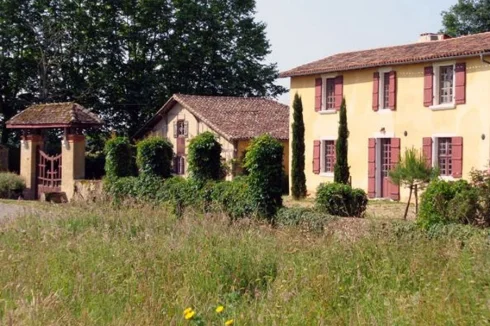France Bans Energy Saving Cold Calling
Tuesday 11 August 2020
The law on telemarketing in France has been toughened, with a complete ban on calls relating to energy conservation.
Although the French government continues to resist demands to completely ban unsolicited telemarketing calls (it cites employment implications), the law has once again being strengthened to make it more difficult for companies to adopt the practice.
The worst offenders of cold calling are secondary energy suppliers and their partners, selling house insulation or other related products and services, in the knowledge that tax credits and other financial assistance are available to households.
As we reported last month, the French energy ombudsman recently expressed concern about the increase last year in the number of complaints he had received concerning abusive canvassing by energy suppliers.
Under the new law, there is now an outright ban on telemarketing for rénovation énergétique.
In addition, there are stronger controls on other telephone canvassers. In future, any professional who contacts a consumer by telephone with a view to concluding a contract for the sale of goods or the provision of a service must indicate at the beginning of the conversation, in a clear and precise manner, their identity, the identity of the person on whose behalf they are making the call, and the commercial nature of the call.
The seller must also indicate that the consumer can register free of charge on the official telephone non-solicitation list 'Bloctel', if they not wish to be canvassed commercially by this means.
As in the past, following canvassing by telephone, the consumer is only bound by any offer made after signing and accepting it in writing or giving their consent electronically.
The use of a masked number remains prohibited.
The sanctions for breach of the law have also been considerably increased, from a maximum of €3,000 to €75,00 for individuals and from €15,000 to €375,000 for companies.
Controls are also to be introduced on the times when telemarketing calls can be made, with the prospect that they may be banned during the lunch period, after 2000 hours and on Sundays. A regulation to be published will set out the precise rules that will apply.
Until now, companies were entitled to approach their own customers, whether or not they were registered with Bloctel, as long as there was a pre-existing contractual relationship.
From now on, they will only be able to do so in order to offer them products or services 'related or complementary to the object of the current contract or likely to improve its performance or quality'.
In concrete terms, a company will no longer be able to canvass a former customer or offer a current customer a service that has nothing to do with the offer subscribed to.
Despite a hardening of the line taken by the government, there remain difficulties of enforcement, not least because many of the call centres are based overseas.
In order to try and combat that loophole, two years ago a law was passed that banned the use of French telephone numbers used by call centres abroad of companies based in France.
As a result, all centres located abroad no longer have the right to call France from abroad with a local geographic number (starting with 01 to 05) or the generic 09 telephone number.
In a related change, automated systems that send more messages and calls than they receive are no longer be able to send promotional messages with mobile phone numbers that start with 06 or 07. In due course this same regulation with apply to the standard geographic telephone numbers.
Consumer groups have continued to press for additional controls on telemarketing, mainly as a result of the failure of the Bloctel service introduced in 2016, which was designed to stop unsolicited marketing calls.
Under the system, companies who undertake direct marketing must consult the Bloctel register on a monthly basis, and remove from their own prospecting list those telephone numbers on the register.
Although many such calls emanate from a platform outside of France, if such calls have been commissioned by a company based in France the company itself can be fined.
However, although there are tens of thousands of companies involved in telephone marketing, less than a 1,000 are listed on Bloctel, committed to complying with the regulations.
Consumer groups and many parliamentarians are continuing to demand that there should be an opt-in policy adopted for such calls, not one that requires the consumer to opt-out.
Thank you for showing an interest in our News section.
Our News section is no longer being published although our catalogue of articles remains in place.
If you found our News useful, please have a look at France Insider, our subscription based News service with in-depth analysis, or our authoritative Guides to France.
If you require advice and assistance with the purchase of French property and moving to France, then take a look at the France Insider Property Clinic.





